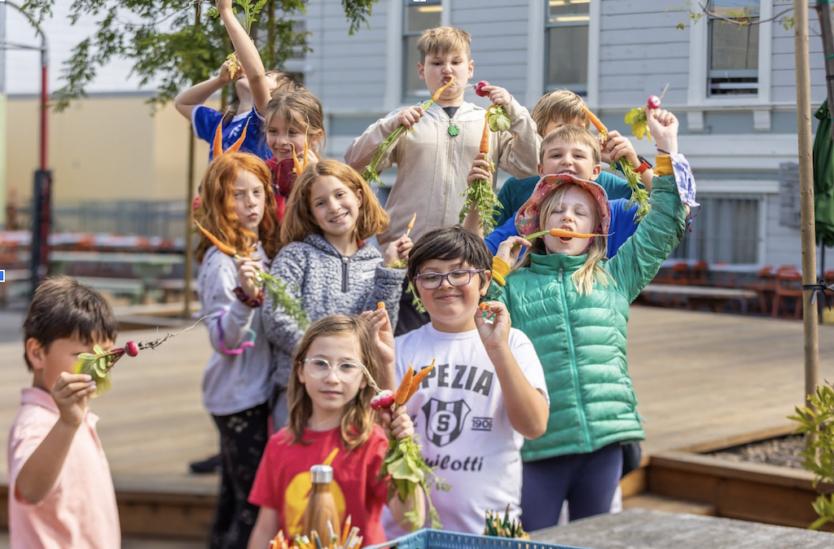In a transdisciplinary program like La Scuola International School’s elementary program, scientific concepts become enduring understandings for students as they dive deep into a central idea through an inquiry cycle. In a social constructivist learning setting, students share what they already know, develop research questions, gather more information, sort out information and take action. Science-centered units of inquiry last many weeks and unfold across subject areas in the homerooms, in the ateliers, in the garden and in the field.
Looking at a K-5 weekly schedule, one might ask, “When’s the Science class on the schedule?”
- “It’s everyday during our inquiry into Sound,” says third grader Olivia while they explore the IB PYP transdisciplinary theme, How the World Works.
- “It’s everyday during our inquiry into Fresh water,” says second grader Robert about the IB PYP transdisciplinary theme, Sharing the Planet.
- “It’s everyday during our inquiry into plant and animal life cycles,” says fifth grader Matteo who points out the IB PYP transdisciplinary theme, Who We Are.
- “It’s everyday during our inquiry into Light,” says Kindergartener Austin when they experiment throughout the IB PYP transdisciplinary theme, How the World Works.
- “It’s everyday during our inquiry into Space Explorations,” says first grader Eloise while they explore the IB PYP transdisciplinary theme, Where We Are in Place and Time.
Throughout the IB PYP Curriculum Framework
The International Baccalaureate (IB) Primary Years program (PYP) FRAMEWORK has six transdisciplinary themes. Within that framework, La Scuola educators develop central ideas for many of the transdisciplinary themes that are centered on physical and life sciences. Learning outcomes are adopted from the Next Generation Science Standards. First graders also inquire into materials properties and balanced choices (health). Second graders also inquire into inventions and geography, while third graders also inquire into states of matter and ecosystems. Fourth and fifth graders also inquire into energy, geology, and technology innovations.
Wait! What about the Kindergarteners, what are other sciences in addition to light?
Let’s head into the garden! Kinders have a unit of inquiry Our Garden with the central idea, Empathy for other living things in our garden is strengthened by scientific knowledge of these species. In this eight-week unit, Kindergarteners develop skills in classification, begin to understand survival in the natural world and imagine human responsibilities in the garden and our world.
Environmental Studies
Every week, students in the primary years program (K-5) bee-line to the garden for Environmental Studies class with Hannah. Each grade level meets in half-class groups to more intimately investigate the natural world. La Scuola’s Environmental Studies Program, which begins on our early years campuses and is inspired by the Reggio Emilia approach, has three overarching pedagogical goals: ecoliteracy, stewardship and gardening skills. In environmental studies, students are developing observational skills and vocabulary to express their theories in one hundred languages. They are actively nurturing and engaging in a garden that reflects biodiversity – in plantings, color and scents – and in animals, insects and bugs; and students are working with tools for viewing, measuring, digging and watering. And they are tasting their harvests!
Sciences in the IB transdisciplinary framework combined with an environmental studies program activates curiosity in learners and fosters the research process to answer their questions, and generate more.
Written by Sally Peterson, Director of Teaching and Learning
Share this Post

